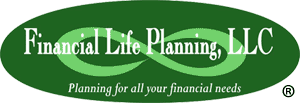
Is a Reverse Mortgage a Wise Approach to Extra Retirement Cash Flow?
As retirement approaches, many individuals find themselves in need of additional cash flow to support their financial needs. One potential solution that has gained popularity is a reverse mortgage. While borrowing money from home equity may seem like an attractive option, it is essential to carefully consider the financial implications and method before making a decision. In this article, we will explore the eligibility requirements, different types of reverse mortgages, payment options, and potential drawbacks associated with this financial tool.
Determining Your Eligibility
To be eligible for a reverse mortgage, you must be at least 62 years old and own a primary residence. Additionally, you should not have any outstanding loans on the property. The loan amount you can receive is based on factors such as your age, the value of your home, and prevailing interest rates. It is important to note that the money received from a reverse mortgage is not taxable and can be used for any purpose. However, it is crucial to consider that the loan amount will increase over time due to accruing interest.
Weighing Your Options
Before deciding to take out a reverse mortgage, it is vital to evaluate your reasons for needing extra cash flow during retirement. If you are struggling to pay bills or have high-interest loans that need to be paid off, a reverse mortgage may be a viable option. However, if you are seeking additional income to supplement desired lifestyle, it may be prudent to explore alternative options, such as part-time employment or tapping your investment portfolio.
If you determine that a reverse mortgage is the right choice for you, there are several types of loans and payment options available. The most common type is the federally-insured Home Equity Conversion Mortgage (HECM). HECM loans have limited costs to borrowers but come with a maximum loan amount. Non-HECM loans, offered by private institutions, provide the opportunity to obtain a larger loan; however, they often come with higher costs and are not federally insured.
When selecting a payment option, most reverse mortgages offer a choice between a lump sum, monthly cash advances, or a line of credit. Each option has its advantages and should be carefully considered based on your individual needs and preferences.
Although there are many attractive benefits of the program, it is important to understand and weigh the downsides of higher origination fees and annual FHA Mortgage Insurance Premiums.
Taking Care of Your Home
While a reverse mortgage can provide relief in terms of bills or other debts, it is crucial to remember that you must continue to pay taxes and maintain your property. Failure to do so can result in the lender requesting repayment. Additionally, if you declare bankruptcy, commit fraud, add a new owner to the property's title, take out an additional loan, or change the property's zoning classification, the lender may also request repayment.
Paying Back a Reverse Mortgage
Before taking out a reverse mortgage, it is essential to consider how you will repay the loan. If you decide to sell your home, the proceeds from the sale will be used to pay off the mortgage. Depending on the amount borrowed and the accrued interest, you may have limited funds remaining from the sale. Alternatively, if you plan to pass on your home to your beneficiaries, they will be responsible for repaying the mortgage after your passing. This can be done through selling the house, refinancing the home, or paying back the loan balance in full. It is important to note that the lender has the authority to sell your home to settle the loan balance.
Exploring the Benefits and Drawbacks
Like any financial decision, a reverse mortgage has its advantages and disadvantages. It is important to weigh these factors before proceeding.
Benefits of Reverse Mortgages
- Ability to Stay in Your Home: One significant benefit of a reverse mortgage is the ability to age in place or leave your family home to your children. The funds from a reverse mortgage can help make this possible, and they can even be used to make necessary home accessibility modifications.
- Tax-Free Funds: Unlike other sources of income, reverse mortgage funds are not considered taxable income. This can help maximize your income and ensure that they do not interfere with your Social Security or Medicaid benefits.
- Elimination of Mortgage Payments: With a reverse mortgage, you no longer have to make monthly mortgage payments. This can alleviate financial pressure and free up cash for other expenses.
- Flexible Use of Funds: There are no restrictions on how you can use the funds from a reverse mortgage. Whether you want to supplement your Social Security benefits, pay off debt, cover medical expenses, or make your home more accessible, the choice is yours.
- Multiple Payment Options: Reverse mortgages offer various payment options, including lump sum, line of credit, and monthly payments. This flexibility allows you to choose the method that best suits your financial needs.
Drawbacks of Reverse Mortgages
- Costs and Fees: Reverse mortgages come with potentially high closing costs, servicing fees, and mortgage insurance premiums. These costs can vary depending on the type of loan and the lender, and they can add to the total expense of the loan.
- Reduction of Home Equity: As a reverse mortgage accrues interest over time, your loan balance will increase, and your home equity will decrease. This means that there may be less equity available for your heirs when you pass away.
- Complexity: Reverse mortgages can be complex, and it can be challenging to fully understand the terms and conditions. It is crucial to seek guidance from a financial professional and undergo a financial counseling session before proceeding with a reverse mortgage.
- Responsibility for Home Maintenance: While you no longer have to make mortgage payments with a reverse mortgage, you are still responsible for property taxes, insurance, and home maintenance. Failure to meet these obligations can result in foreclosure.
Financial advisors often advise using reverse mortgages as a "last resort" due to their cost and complexity.
Conclusion
A reverse mortgage can be a valuable tool for providing extra cash flow during retirement. However, it is important to thoroughly understand the eligibility requirements, types of loans, payment options, and potential drawbacks associated with this financial tool. Careful consideration should be given to your specific financial needs and goals before deciding if a reverse mortgage is the right approach for you. Consulting with a trusted financial professional like us at Financial Life Planning can provide valuable guidance and help ensure that you make an informed decision that aligns with your overall financial health and well-being.
Click below to schedule a consultation to address this or other financial planning related needs.
Edward C. Goldstein, CFP®, MBA, President
CERTIFIED FINANCIAL PLANNER ™ Practitioner
Financial Life Planning, LLC
10,000 Lincoln Dr. East, Suite 201
Marlton, NJ 08053
Phone: 856-988-5480
Fax: 908-292-1040

